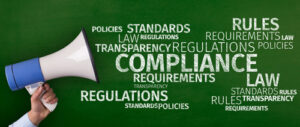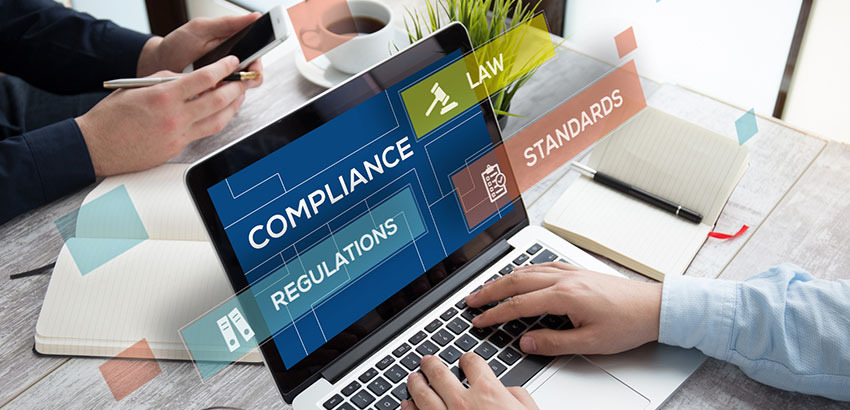Exploring Exchange Consistence Regulations and Guidelines
In the present interconnected worldwide economy, organizations should explore a perplexing scene of exchange of consistence regulations and guidelines. These regulations oversee the import and product of merchandise, administrations, and innovation, guaranteeing that worldwide exchange is directed legitimately and morally. Consistency with these guidelines is basic for keeping away from punishments, keeping up with business trustworthiness, and encouraging positive associations with global accomplices. This article gives a top-to-bottom gander at the vital parts of exchange consistency, significant global guidelines, and best practices for organizations to guarantee consistency.

The Significance of Exchange Consistency
Exchange consistency is fundamental in light of multiple factors:
Legitimate Commitments: Organizations should comply with the exchange regulations and guidelines of the nations in which they work to stay away from lawful repercussions.
Risk The executives: Appropriate consistency mitigates dangers like fines, sanctions, and reputational harm.
Market Access: Consistence with exchange guidelines is in many cases important to acquire and keep up with admittance to worldwide business sectors.
Moral Principles: Complying with exchange regulations guarantees that organizations work morally and add to worldwide endeavors to battle criminal operations like pirating and dealing.
Parts of Exchange Consistency
Exchange consistency includes a few basic parts that organizations should make do with:
Exchange Controls: Rules that regulate the result of products, advancement, and organizations to ensure they don’t add to threats to public security or worldwide procedure targets.
Import Rules: Guidelines and decide the arrangement with the importation of items into a country, including charges, commitments, and customs systems.
Approves and Boycotts: Restrictions are constrained by state-run organizations on trade with unequivocal countries, substances, or individuals due to reasons like public well-being or normal freedoms.
Economic alliance: Reciprocal or multilateral arrangements between nations that lay out the standards of exchange, including levies, amounts, and debate goal components.
Hostile to Debasement Regulations: Guidelines pointed toward forestalling payoff and defilement in global deals.
Significant Global Exchange Consistence Guidelines
A few critical global guidelines and structures oversee exchange consistency. Understanding these guidelines is fundamental for organizations to take part in worldwide exchange.

Trade Organization Guidelines (EAR)
The EAR, regulated by the U.S. Branch of Trade’s Department of Industry and Security (BIS), administers the product and once again commodity of business and double-use things (things with both business and military applications).
Trade Control Rundown (CCL): A rundown of things subject to send out controls.
Permit Prerequisites: Certain things on the CCL require a commodity permit contingent upon the objective, end-client, and end-use.
Worldwide Traffic in Arms Guidelines (ITAR)
ITAR, overseen by the U.S. Division of State’s Directorate of Safeguard Exchange Controls (DDTC), manages the commodity of protection articles and administrations. Central issues include:
U.S. Weapons Rundown (USML): A rundown of safeguard articles and administrations controlled under ITAR.
Enrollment and Permitting: Elements associated with the assembling, commodity, or import of safeguard articles should enlist with the DDTC and acquire the vital licenses.
Customs-Exchange Association Against Psychological Warfare (C-TPAT)
C-TPAT is a deliberate inventory network security program driven by U.S. Customs and Line Assurance (CBP). It centers around working on the security of privately owned businesses’ stockpile affixes for psychological warfare. Advantages of interest include:
Decreased Examinations: Less CBP investigations and quicker handling times.
Market Access: Improved standing and admittance to business sectors esteeming secure stock chains.
General Information Insurance Guideline (GDPR)
While an information protection guideline, the EU’s GDPR has suggestions for global exchange, particularly for organizations taking care of individual information across borders. Key perspectives include:
Information Move Necessities: Guidelines on moving individual information outside the EU to guarantee it is safeguarded.
Consistency Commitments: Organizations should execute rigid information security measures.
Joined Countries (UN) Authorizations
The UN forces authorizations to keep up with or reestablish worldwide harmony and security. These assets can incorporate arms bans, travel boycotts, resource freezes, and limitations on monetary exchanges. Organizations should guarantee they don’t participate in disallowed exchanges with endorsed substances.
Best Practices for Exchange Consistency
To explore the perplexing scene of exchange consistency, organizations ought to carry out the accompanying prescribed procedures:
Foster a Hearty Consistence Program
An exhaustive exchange consistency program is fundamental for guaranteeing adherence to guidelines. Key parts include:
Arrangements and Strategies: Characterized approaches and methods for overseeing exchange consistency exercises.
Preparing and Schooling: Customary preparation programs for workers on consistence prerequisites and strategies.
Inside Reviews: Customary reviews to recognize and address consistency holes.
Direct Careful Reasonable level of effort
An expected level of effort is significant for moderating dangers related to global exchange. This incorporates:
Know Your Client (KYC): Checking the personality and believability of exchanging accomplices.
Screening Against Approvals Records: Taking a look at clients, providers, and exchanges against significant authorization records.
End-Use and End-Client Confirmation: Guaranteeing that merchandise and innovation are utilized for genuine purposes and by approved end-clients.

Use Innovation and Computerization
Utilizing innovation can upgrade the proficiency and viability of exchange consistency endeavors. Instruments and frameworks include:
Send out Consistence Programming: Mechanizes the order, authorizing, and documentation processes.
Screening Devices: Robotized screening of exchanges against sanctions and denied party records.
Information Investigation: Breaking down exchange information to distinguish examples and potential consistency issues.
Remain Informed and Refreshed
Exchange guidelines are continually advancing. Organizations should remain informed about changes and updates to guarantee continuous consistency.
Administrative Checking: Monitoring changes in exchange regulations and guidelines.
Industry Organizations: Taking part in industry gatherings and discussions to share data and best practices.
Government Commitment: Drawing in with important government offices to look for direction and explanation on consistence issues.
Encourage a Consistence Culture
Making a culture of consistency inside the association is crucial. This includes:
Initiative Responsibility: Senior administration should exhibit a guarantee of consistency.
Worker Commitment: Empowering representatives to take responsibility for obligations.
Detailing Instruments: Giving channels to representatives to report potential consistence infringement unafraid of reprisal.
Exploring exchange consistency regulations and guidelines is a complex however fundamental undertaking for organizations that take part in worldwide exchange. By grasping key guidelines like the EAR, ITAR, C-TPAT, GDPR, and UN endorses, and executing best practices, for example, creating vigorous consistency programs, leading intensive expected level of effort, using innovation, remaining informed, and encouraging a consistent culture, organizations can oversee consistence gambles. Adherence to exchange consistency guarantees legitimate and moral tasks as well as upgrades business notoriety and works with smoother global exchanges. In an undeniably globalized economy, exchange consistency isn’t simply an administrative necessity but an essential objective.
How We Picked the Best Rebate Merchants
Giving perusers fair, extensive surveys of online dealers, and exchanging stages is a main concern for Investopedia. We consolidated our industry research, topic skill, and financial backer study information to direct the examination and weightings for our 2024 internet-based agent grants. To gather the information, we sent a computerized review with 110 inquiries to every one of the 26 organizations we remembered for our rubric. Furthermore, our group of analysts checked the overview reactions and gathered any missing pieces of information through internet-based examination and discussions with each organization straightforwardly. The information assortment process traversed from Feb. 19 to Walk 19, 2024.
We then, at that point, fostered an exclusive model that scored each organization to rate its presentation across 11 significant classes and 89 measures to track down the best internet-based merchants and exchanging stages.

Exchange in a hurry. Anyplace, Whenever
One of the world’s biggest crypto-resource trades is prepared for you. Appreciate cutthroat expenses and committed client assistance while exchanging safely. You’ll likewise approach Binance apparatuses that make it more straightforward than any time in recent memory to see your exchange history, oversee auto-ventures, view value graphs, and make transformations with zero charges. Make a record for nothing and join a large number of merchants and financial backers on the worldwide crypto market.
Exchange consistency regulations and guidelines are a basic system that oversees worldwide exchange, guaranteeing that organizations follow the principles set by states, global associations, and exchange bodies. These regulations control the progression of products, administrations, innovation, and data across borders. Guaranteeing consistency is essential for keeping up with public safety, advancing fair exchange, and staying away from legitimate punishments. The intricacy of exchange regulations frequently includes various partners, including customs specialists, organizations, administrative bodies, and lawful counsels. This paper will talk about the central parts of exchange consistency regulations and guidelines, including send-out controls, sanctions, levies, customs techniques, hostile to debasement regulations, and best practices in exchange consistency.
Trade Control Guidelines
Trade controls allude to the arrangement of regulations and guidelines administering the exchange of merchandise, administrations, and innovation starting with one country then onto the next. These controls are in many cases used to defend public safety, advance international strategy targets, and forestall the multiplication of weapons of mass obliteration. In the US, trade controls are basically represented by two significant guidelines:
The Commodity Organization Guidelines (EAR): Oversaw by the U.S. Branch of Trade’s Agency of Industry and Security (BIS), the EAR controls the commodity of double use products, i.e., things that have both regular citizen and military applications. It expects exporters to acquire licenses for specific controlled things or advancements.
The Global Traffic in Arms Guidelines (ITAR): Directed by the U.S. Branch of State, ITAR administers the product of guard related articles, administrations, and advancements. Organizations trading military products should stick rigorously to ITAR to stay away from weighty fines and punishments.
Consistence with send out control guidelines is significant for organizations associated with global exchange. Infringement can bring about criminal allegations, common punishments, and being banished from future commodities.
Authorizes and Bans
Sanctions are prohibitive measures forced by one nation or gathering of nations against one more to accomplish international strategy goals. These actions can target whole nations or explicit elements, including people and organizations. Authorizes commonly incorporate exchange limitations, resource freezes, and travel boycotts.
U.S. Sanctions: The U.S. Depository Division’s Office of Unfamiliar Resources Control (OFAC) directs sanctions against nations, associations, and people. A few eminent approvals programs incorporate those against North Korea, Iran, Russia, and Venezuela. Organizations are precluded from managing endorsed elements except if approved by OFAC.
European Association (EU) Authorizations: Like the U.S., the EU forces approvals to address worldwide security dangers, maintain basic freedoms, and advance global harmony. EU sanctions are restricting on all EU part states, and organizations should conform to these guidelines while exchanging with endorsed nations.
Disregarding sanctions regulations can bring about extreme punishments, including significant fines and detainment. Subsequently, organizations should lead an expected level of effort and screen their exchange accomplices against endorse records to guarantee consistence.
Levies and Economic deals
Levies are charges forced on imported merchandise. They are one of the most well-known exchange boundaries utilized by legislatures to safeguard homegrown enterprises, raise income, and impact exchange strategies. Levies shift in view of item characterization and nation of beginning.
World Exchange Association (WTO): The WTO administers worldwide economic deals and attempts to lessen duties and other exchange obstructions between part nations. It likewise settle questions and guarantees that part states agree with worldwide exchange rules. WTO arrangements, like the Overall Settlement on Levies and Exchange (GATT), have been instrumental in bringing down worldwide duties and advancing deregulation.
Customs Consistence
Coming up next are key areas of customs consistence:
Customs Valuation: This alludes to deciding the worth of imported products to evaluate obligations. Under the WTO’s Settlement on Customs Valuation, nations should utilize an exchange esteem strategy to survey obligations, and that implies that the cost paid for the products fills in as the essential reason for valuation.
Import Documentation: Precise documentation is fundamental for customs leeway. Shippers should give business solicitations, bills of filling, pressing records, endorsements of beginning, and other pertinent reports to customs specialists. Inability to give exact data can prompt fines, shipment delays, or the capture of products.
Customs Reviews: Numerous nations lead present section reviews on guarantee consistence with customs regulations. Organizations that neglect to keep up with appropriate documentation or give erroneous statements might be dependent upon punishments. In this way, organizations should keep up with definite records of their import and commodity exercises.
Against Defilement and Pay off Regulations
Defilement and pay-off regulations are a significant piece of exchange consistence. These regulations forbid organizations from offering, paying, or getting pay-offs in global exchange exchanges.
Unfamiliar Degenerate Practices Act (FCPA): In the U.S., the FCPA disallows organizations and their representatives from offering anything of significant worth to unfamiliar government authorities to acquire a business advantage. The FCPA additionally expects organizations to keep up with precise books and records to appropriately reflect exchanges.
Best Practices for Exchange Consistence
Given the intricacy of exchange regulations and guidelines, organizations should take on accepted procedures to guarantee consistence and stay away from lawful liabilities. A portion of the key prescribed procedures include:
Exchange consistence regulations and guidelines assume a vital part in working with worldwide exchange, guaranteeing public safety, and advancing fair rivalry. Organizations should explore an intricate scene of commodity controls, sanctions, taxes, customs methods, and hostile to defilement regulations. A far reaching exchange consistence program, standard representative preparation, and the utilization of innovation can assist organizations with staying consistent and moderate the dangers related with global exchange. Neglecting with comply to exchange consistence regulations can bring about serious punishments, including fines, reputational harm, and confined admittance to worldwide business sectors. Hence, consistence isn’t just a lawful necessity yet additionally an essential business basic.


